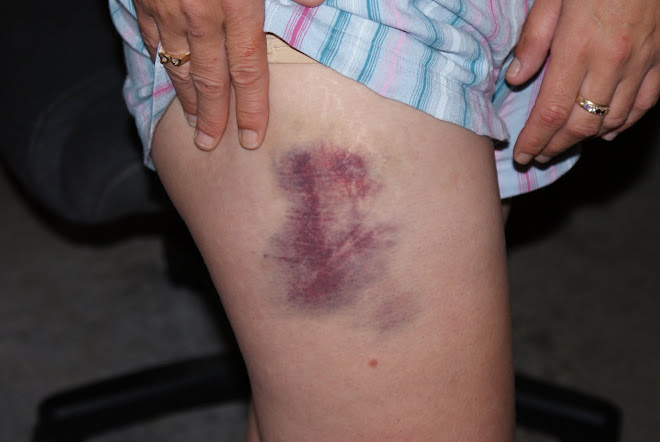Source:Toronto Star
Fantino thinks SIU overstepped its mandate
Robyn Doolittle
Staff Reporter
Details of a bitter behind-the-scenes dispute involving the director of the Special Investigations Unit and OPP Commissioner Julian Fantino have been made public in Superior Court.
On Sept. 28, 2009, SIU director Ian Scott announced he was unable to decide if an OPP officer was guilty of wrongdoing in the shooting death of a Peterborough man.
The reason, Scott explained in a news release, was because both that officer and his partner had had their notes vetted by a police union lawyer prior to submitting them to SIU investigators.
Before issuing the release, Scott wrote to Fantino.
“This note writing process flies in the face of the two main indicators of reliability of notes: independence and contemporaneity,” Scott wrote. “In this most serious case, I have no informational base I can rely upon.”
Fantino sent a reply on Sept. 30.
“I am writing to express my concern and dismay over the impact of your recent media release,” Fantino wrote. “If your intent was to inflame an already volatile situation for all concerned, I can now inform you that you have succeeded.”
This exchange and others were filed in Superior Court last week as part of an ongoing legal dispute over how police lawyers do their job.
Across the province, officers involved in fatal incidents have their notes and comments “approved” by union lawyers before dealing with the SIU. In many cases, the same lawyer is dealing with both subject and witness officers.
But, argues Scott, because lawyers are duty bound to share information between clients, this violates a section of the Police Act that calls for officers to be segregated until after being interviewed by the SIU. Notes are also supposed to be written “contemporaneously” following an event.
Because this practice interferes with an individual’s independent recollection of an event, Scott has spoken out publicly about his concerns, sparking outrage from the province’s police unions. Since then, the relationship between Scott and Ontario police associations has become so strained that in January the attorney general’s office appointed a mediator to defuse the situation.
“We recognize that there are bound to be tensions in any system of police oversight, but that a professional working relationship must be maintained in order to best serve the public,” said Brendan Crawley, spokesperson for the attorney general’s office. “To that end we have asked former Chief Justice (Patrick) LeSage, a highly-respected mediator, to work with the SIU and police to improve communications and strengthen their professional working relationship.”
Meanwhile, last fall the families of two men shot dead by OPP officers asked a Superior Court judge to put an end to the long-standing practice of lawyer vetting.
Police associations, the unions and their boards, say police officers have the right to a lawyer under the Charter of rights. Julian Falconer, who represents the Schaeffer and Minty families, says the Charter doesn’t apply to witness officers.
Exactly where the line between the Act and the Charter is drawn has been the subject of much debate.
“There appears to be a conflict between the Charter rights of the police officer and the intent of police regulations and provincial legislation governing law enforcement,” said city councillor Adam Vaughan, who has fielded Scott’s concerns on the Toronto police board. “If that’s to change, it’s going to require a court decision or legislative remedy.”
Andrew McKay, an OPP police union lawyer, says the SIU wants to get around solicitor-client privilege.
“We stand firm that we have done absolutely nothing wrong and that the officers are entitled to counsel,” said McKay, adding “We don’t tell the officers what to put in their memo book.”
--------------------------------------------------------------------------------
What they wrote
November 2:
“I am writing to again express my dismay over the impact of your recent media statements… Once again, the inflammatory nature of your statements has upset the officers involved, the family of the deceased and the community. Rather than carry on an self-serving media campaign, I suggest you await the outcome of our investigation.”
—Julian Fantino
November 4
“You comment that the inflammatory nature of my statements has upset yet again, among others, the family of Mr. Levi Schaeffer… If any comments I have made have upset the family, I would be concerned… accordingly, I contacted the counsel for the Schaeffer family and asked him whether I had caused them any upset. I was informed that this was not the case. I would ask that you cease purporting to speak on their behalf.”
—Ian Scott
November 13
“Thank you for your letter of November 4, 2009. Unfortunately, you still seem determined to discount any concerns that have been brought to your attention about your inflammatory remarks… (which) come across as an attempt by you to assume authority and control over something that is not part of your mandate as the Special Investigations Unit director.”
—Julian Fantino
Friday, May 7, 2010
Subscribe to:
Post Comments (Atom)
They had No Choice!

They wore these or I took away thier toys for 7 days!
"Damn Street Racer"pays with Brusies


















No comments:
Post a Comment